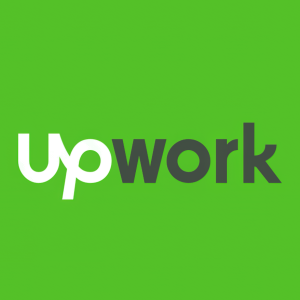Upwork Research Reveals New Insights Into the AI-Human Work Dynamic
Rhea-AI Summary
Upwork (NASDAQ:UPWK) has released a comprehensive study revealing crucial insights into AI-human workplace dynamics. The research shows workers using AI report a 40% productivity boost, but with significant drawbacks. Among high-performing AI users, 88% report burnout and are twice as likely to consider quitting their jobs.
The study, based on 2,500 global workers, reveals that monthly searches for AI-skilled talent on Upwork have surged 300% in the past six months. Notably, freelancers are showing more positive AI adaptation than full-time employees, with 90% reporting accelerated skill acquisition through AI. However, concerning trends show that over two-thirds of high-performing AI users trust AI more than their coworkers, signaling a shift in workplace dynamics.
Positive
- Monthly searches for AI-skilled talent increased 300% over six months
- Workers report 40% productivity boost with AI implementation
- 90% of freelancers say AI helps them acquire new skills faster
- 77% of C-suite leaders observe productivity gains from AI adoption
Negative
- 88% of high-performing AI users report experiencing burnout
- Top AI performers are twice as likely to consider quitting their jobs
- 62% of workers don't understand how their AI use aligns with company goals
- Over two-thirds of users trust AI more than human coworkers, indicating concerning workplace dynamics
News Market Reaction – UPWK
On the day this news was published, UPWK gained 1.48%, reflecting a mild positive market reaction.
Data tracked by StockTitan Argus on the day of publication.
As AI drives productivity gains, new data from Upwork reveals early warning signs from top AI adopters, highlighting the need for new ways of working that sustain both performance and well-being
PALO ALTO, Calif., July 09, 2025 (GLOBE NEWSWIRE) -- Upwork Inc. (Nasdaq: UPWK), the world’s work marketplace, today released a study by the Upwork Research Institute revealing that AI is not just accelerating productivity, but also moving from being a tool to a teammate, reshaping how organizations design roles, build teams, and sustain human connection in the workplace. The findings show that productivity gains are only sustainable when AI augments, not replaces, human connection, purpose, and growth.
The study, From Tools to Teammates: Navigating the New Human-AI Relationship, is the latest installment in a multi-year research series examining the evolving relationship between AI, productivity, and the workforce. Building on last year’s findings—where
Based on a global survey of 2,500 workers, including C-suite executives, full-time employees, and independent freelancers, the new research offers a timely look at how AI is reshaping not just how work gets done, but how individuals relate to their tools, teams, and organizations. The findings come as AI and AI agents are becoming increasingly embedded in workflows. Monthly searches for Upwork talent skilled in AI agents have grown nearly
“AI is no longer just a background tool—it’s becoming a central part of how we work and interact,” said Dr. Kelly Monahan, managing director of the Upwork Research Institute. “It’s unlocking speed and scale, but also reshaping how we collaborate and connect as humans. The productivity paradox we’re seeing may be a natural growing pain of traditional work systems, ones that reward output with AI, but overlook the human relationships behind that work. To lead effectively in the age of AI, companies need to redesign work in ways that support not just efficiency, but also well-being, trust, and long-term resilience.”
Key findings from the report include:
- Productivity gains are accelerating: Employees using AI report a
40% boost in productivity on average. This improvement is fueled by increased comfort with the tools because they’ve had time to experiment (according to30% of respondents), continued product enhancements of tools (25% ), self-directed upskilling (22% ), and employer-supported training (22% ). Organizations are seeing the payoff, as77% of C-suite leaders say they’ve observed productivity gains from AI adoption across their teams in the past year. - But productivity comes at a cost: Workers who report the highest productivity gains due to AI are also the most burned out:
88% say they are experiencing burnout, and they are twice as likely to consider quitting, compared to workers who are less productive with AI tools. Many of these top performers also feel disconnected from their organization’s broader AI strategy, as62% say they don’t understand how their daily use of AI aligns with company goals. This disconnect highlights an emerging risk: Without clear alignment and support, even the most proficient AI users become flight risks. - Workplace trust and connection are shifting: More than two-thirds of high-performing AI users say they trust AI more than their coworkers, and
64% say they have a better relationship with AI than with human colleagues. The majority of high-performing AI users say AI is more polite and empathetic than their teammates, prompting a reevaluation of what “teamwork” looks like. - The rise of AI-human dynamics: Nearly half of all workers say “please” and “thank you” with every single request submitted to AI, and
87% phrase requests as if to a human coworker at least some of the time. This trend toward anthropomorphizing AI reveals the emotional depth of the human-AI relationship and signals that organizations may need to rethink how they design communication norms, workflows, and team dynamics. - Freelancers model healthier relationships with AI: Unlike many full-time employees, freelancers appear to thrive alongside AI. Nearly nine in 10 freelancers say AI has a positive impact on their work, and
42% credit it with helping them specialize in a particular niche. These workers are using AI primarily as a learning partner, with90% saying it helps them acquire new skills faster. Freelancers are also more likely than FTEs to see a direct link between AI use, skill development, and tangible career outcomes like productivity gains and business growth.
“We’re observing a major inflection point in how work gets done,” said Dr. Gabby Burlacu, senior research manager of the Upwork Research Institute. “Over three-quarters of C-suite leaders and employees believe AI agents will completely reinvent the way people work. The real opportunity isn’t just deploying AI; it’s designing the organizational systems where humans and AI can thrive together.”
The path to sustainable, AI-empowered organizations requires reimagining work not as a zero-sum game between humans and machines, but as a dynamic collaboration, where AI evolves from tool to teammate, and people are empowered to thrive alongside it. These findings show that doing so will require more than technical adoption: it will demand new organizational models that prioritize human connection, flexible talent ecosystems, and responsible AI design. As AI accelerates, the organizations best positioned to adapt will be those willing to rethink not only how work gets done, but how their organizations can be redesigned to deliver for the long-run.
For the full study, findings and insights, visit: https://www.upwork.com/research/navigating-human-ai-relationships.
To explore more research from the Upwork Research Institute, visit: https://www.upwork.com/research.
About the Survey
Research findings are based on a survey conducted by Walr, on behalf of Upwork and Workplace Intelligence, between March 25 and April 9, 2025. The survey targeted respondents in the U.S., U.K., Australia, and Canada. In total, 2,500 global workers completed the survey, including 1,250 C-suite executives, 625 full-time, salaried employees, and 625 freelancers. The survey sampled a mix of male and female respondents, as well as a mix of respondents from different generations (Gen Z, Millennials, Gen X, and Baby Boomers). All respondents were between the ages of 18 and 78, were required to have at least a high school diploma, and were required to use a laptop or computer for their work at least “sometimes.” Employees in the top quartile for self-reported AI-related productivity gains were compared to their peers along dimensions of burnout, intentions to quit, and preference for AI tools vs. human colleagues.
About Upwork
Upwork is the world’s largest work marketplace that connects businesses with highly skilled, AI-enabled independent talent from across the globe. From entrepreneurs to Fortune 100 enterprises, companies rely on Upwork’s trusted platform and its mindful AI companion, Uma, to find and hire expert talent, leverage AI-powered work solutions, and drive business transformation. With on-demand access to professionals spanning more than 10,000 skills across AI & machine learning, software development, sales & marketing, customer support, finance & accounting, and more, Upwork enables businesses of all sizes to scale, innovate, and build agile teams for the age of AI and beyond.
Upwork’s platform has facilitated more than
Contact:
Christine Lee
press@upwork.com








